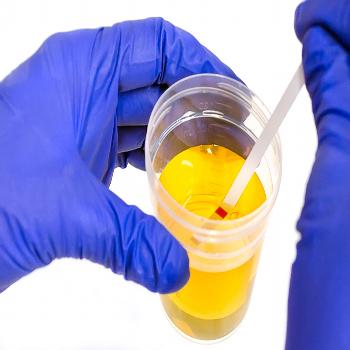The ETOH (Ethyl) Alcohol Test (Urine) includes the following features:
Purpose: This test specifically detects the presence and concentration of alcohol (ethanol) in urine, serving as a reliable indicator of recent alcohol consumption.
Testing Process: The test involves a urine sample collection and analysis that quantifies the amount of alcohol present, functioning as a confirmation test.
Detection Window: Alcohol may be detectable in urine for up to 12 hours following the last drink, depending on the amount consumed.
Result Interpretation: A positive result indicates the presence of alcohol in the urine, providing evidence of recent use during the detection window.
This ETOH (Ethyl) Alcohol Test (Urine) is ideal for workplaces, rehabilitation programs, and organizations focused on maintaining safety and compliance regarding alcohol use among individuals.
Why would I need this test?
The Basic Alcohol Urine Test (Ethyl) detects the presence of alcohol in the urine and is commonly used for:
Pre-employment screenings for roles that require alcohol-free compliance.
Random or routine workplace testing is part of a company’s alcohol and drug policy.
Post-accident testing when alcohol use may be suspected as a contributing factor.
Reasonable suspicion testing when an employee displays signs of impairment at work.
Court-ordered or legal testing, such as probation, child custody disputes, or DUI monitoring.
This test helps determine recent alcohol consumption and is an effective tool for monitoring compliance with alcohol-free policies.
How far back can this test detect alcohol use?
The Basic Alcohol Urine Test typically detects alcohol use within the past 6 to 12 hours, depending on the amount of alcohol consumed and the individual’s metabolism. It may not detect alcohol use beyond this time frame since alcohol leaves the urine relatively quickly.
Will over-the-counter products or medications affect the test results?
Yes, products containing alcohol can potentially influence the results of a basic alcohol urine test. These may include:
Mouthwash, certain hygiene products, or hand sanitizers containing alcohol.
Cough syrups and other medications with alcohol content.
Foods and beverages with alcohol, such as sauces, desserts, or fermented products.
To avoid a false positive, inform the testing administrator about any recent use of alcohol-containing products or medications.
How is the test conducted?
The Basic Alcohol Urine Test is simple and non-invasive:
You will be asked to provide a urine sample in a sterile container, usually in a private restroom at the testing facility.
The sample is then sent to a laboratory for analysis to detect the presence of ethanol (ethyl alcohol).
The collection process typically takes only a few minutes.
